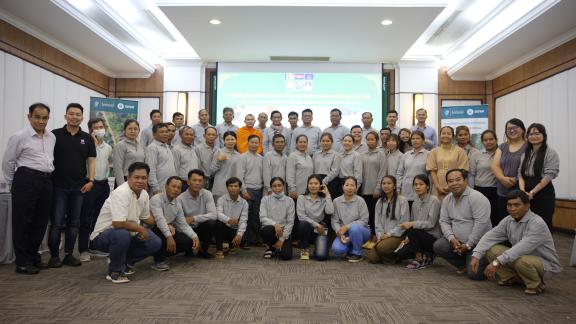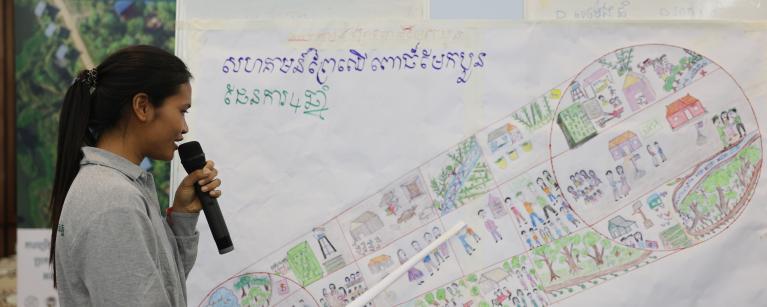In rural Cambodia, forests are more than ecosystems—they’re vital sources of livelihood, culture, and resilience. But for many years, women’s voices were missing from the decisions that shaped these landscapes. Through Oxfam’s Climate Resilience for All (CREFA) project, generously supported by the Government of Ireland, that is beginning to change.
CREFA doesn’t just focus on environmental sustainability, it confronts the gender inequalities that have long hindered women’s participation in forest governance. Across communities, women have traditionally contributed significantly to forest conservation—but cultural norms, unequal access to resources, and low representation in leadership have kept them on the margins.
To challenge these barriers, CREFA introduced a transformative tool: Oxfam’s Gender Action Learning System (GALS). This participatory approach empowers individuals and communities to reflect on gender roles, dismantle stereotypes, and build gender-responsive forest governance. Since its rollout in February 2024, GALS has reached 21 communities, helping integrate inclusive practices into the management of Community Forests (CFs) and Community Protected Areas (CPAs).
The change is already visible. In a recent reflection workshop, community members shared how the trainings have opened new pathways for women to lead. “Since we began using the GALS tool last year, more women in our community have stepped up—joining activities and even taking leadership roles on the committee,” said Mr. Lann Roth, a committee member of Torteng Thngai Community Forestry.
Women are not only participating—they’re driving change. Leadership roles once dominated by men are now being shared. Forest planning is more inclusive. Stereotypes are being questioned. In the words of one participant, the forest has become a space “where all voices matter.”
To ensure these gains are lasting, CREFA partners continue to offer mentorship, follow-up, and support. It’s more than a training—it’s a movement toward inclusive governance, equitable access, and resilient communities where both women and men are stewards of the land.
Spearheading gender equity through forest conservation, the CREFA project is helping communities grow—not just trees, but leaders.

Participants from across 14 communities come together in a GALS training to reflect on gender roles, challenging stereotypes, and laying the foundation for more equitable forest governance. Photo: Botom Mune/Oxfam
